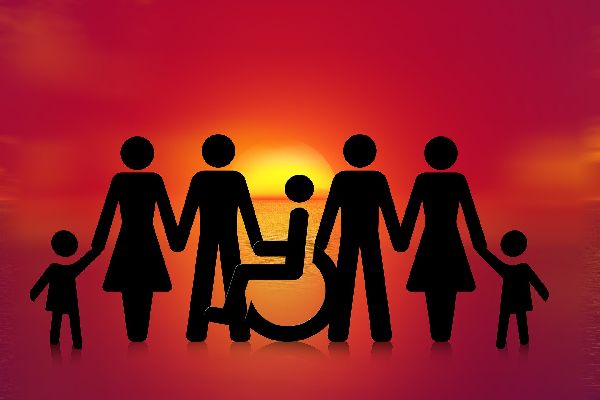COVID-19 poses more challenges for PwDs

Vishü Rita Krocha
Kohima | May 19
The COVID-19 pandemic has disrupted lives around the world, but Persons with Disabilities (PwDs) are among the hardest hit as many of them come with underlying health conditions which puts them among the high risk groups.
Even during normal times, people with disabilities face insurmountable obstacles in accessing facilities for education, healthcare and employment opportunities, and the pandemic has further posed a huge challenge for many persons with disabilities even to implement basic hygiene and other safety measures, such as physical distancing and hand washing.
“This COVID-19 crisis situation is bringing to the fore the extreme inequality and exclusion faced by people with disabilities and while they are uniquely affected by the disease, sadly they are largely being left out of the pandemic response”, asserts Diethono Nakhro, State Commissioner for Persons with Disabilities (SCPD).
Stating that children with disabilities are among those who are most dependent on face-to-face services, she pointed out that in respect of education, the lockdown situation has further put them at an unfair disadvantage. Even in the light of “some distance/online learning solutions being devised for other students, our students with disabilities are unlikely to benefit from them”, she points out.
The crisis situation, she feels, will only push many disability families into more difficulty as many of them live in poverty and hardship. “In terms of employment and income generating activities, it is only going to worsen the exclusion and discrimination that they face, as also the social isolation of people living with disabilities which is intensified”, she highlights.
However, Nakhro also maintains that “as unfortunate as this pandemic situation is, it is also giving us a valuable opportunity to learn and build a more inclusive world as we move forward.” Even with the general notion earlier that it is too difficult to change the system, in this crisis, she points out that “when non-disabled people were pushed into a corner, major changes became possible in a jiffy wherein alternate systems have been devised in no time to enable people to get on with their lives.” “We don’t have excuses now not to make changes to include everyone”, she asserts while putting across that “an inclusive society benefits everyone—the entire society, and not only a particular group of people.” “We have to rebuild our society and we have to make sure inclusion for everyone is ‘baked in’; it can no longer be an exception”, she asserts.
Also with the pandemic lockdown being lifted phase by phase and with increasing public mobility, she emphasizes on the need for SOP (Standard Operating Procedure) on health services and to put specific measures in place for the quarantine, isolation and treatment of persons with disabilities for COVID-19. “We are aware that the threat to public health is far from over, which means that as public movement and activities continue to increase in the weeks ahead, the health risks faced by the disability community also increases significantly”, she elucidates.
It is worth mentioning here that Diethono Nakhro has been championing the cause of disability for several years and her appointment as State Commissioner for Persons with Disabilities in the early part of 2019 has highly accelerated the movement. With aggressive steps taken by her office, awareness on disability in the state is more visibly seen in recent times.
Nagaland is one of the first states to notify specific guidelines on COVID-19 measures in respect of persons with disabilities. It is also possibly the only state in the country giving their daily briefings on the COVID-19 situation with sign language interpretation for persons who are deaf or hard of hearing.
Despite the stark reality of the disability sector being neglected over the past many years, with the little resources available, her office has put to fore several issues involving people with disability. “Though all the deficiencies that still plague us make everything so much more difficult during these extraordinary times that we find ourselves in currently, authorities at various levels have been very responsive to the needs and requirements of the disability community. All the District Administrations have cooperated with my office and have provided quick assistance wherever needed”, she expresses.






